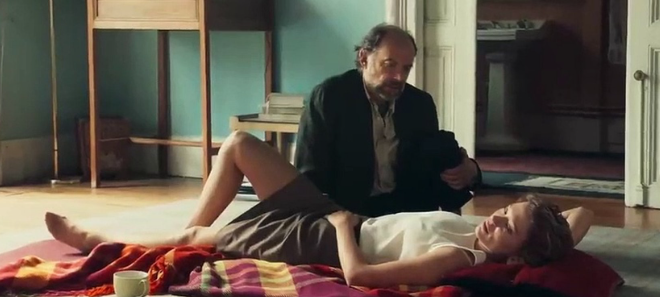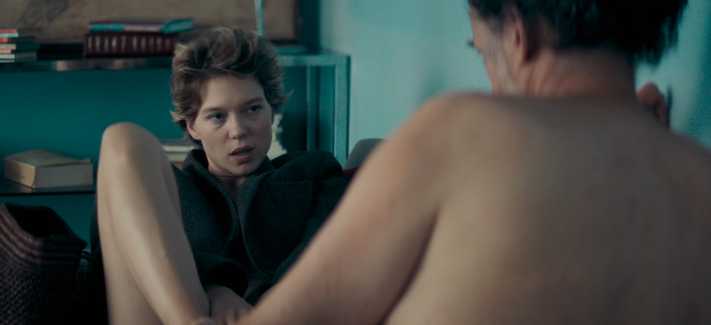
Tromperie (2021)
Arnaud Desplechin’s Tromperie (Deception) is a quiet but powerful meditation on love, longing, and the complexity of human relationships. Adapted from Philip Roth’s introspective novel, the film abandons conventional storytelling in favor of intimate dialogue and emotional unraveling. At its center is a writer, played with subtle brilliance by Denis Podalydès, who finds himself entangled in emotional liaisons with various women—each representing a different shade of desire, regret, and vulnerability.

The film unfolds like a confessional, as if the audience is granted access to the innermost corners of the writer’s mind. Through hushed conversations—sometimes with his wife, other times with a passionate lover played by Léa Seydoux—we witness the quiet storm of deception, not just between people, but within oneself. Desplechin’s camera lingers, not on action, but on expression: a look, a hesitation, a pause heavy with unspoken emotion.

What makes Tromperie so compelling is its refusal to offer judgment. The characters are flawed, yes—but they are also deeply human. Through its poetic rhythm and psychological depth, the film challenges us to reflect on the fragile boundary between truth and illusion in love. It’s not a film of answers, but one of questions—slow-burning, cerebral, and haunting in its honesty.

In the end, Tromperie is not about scandal, but about the emotional echoes we carry—those moments of connection or rupture that stay with us long after words have faded. It’s a cinematic experience best savored slowly, one that dares to ask whether the stories we tell in private are more honest than the lives we live in public.





